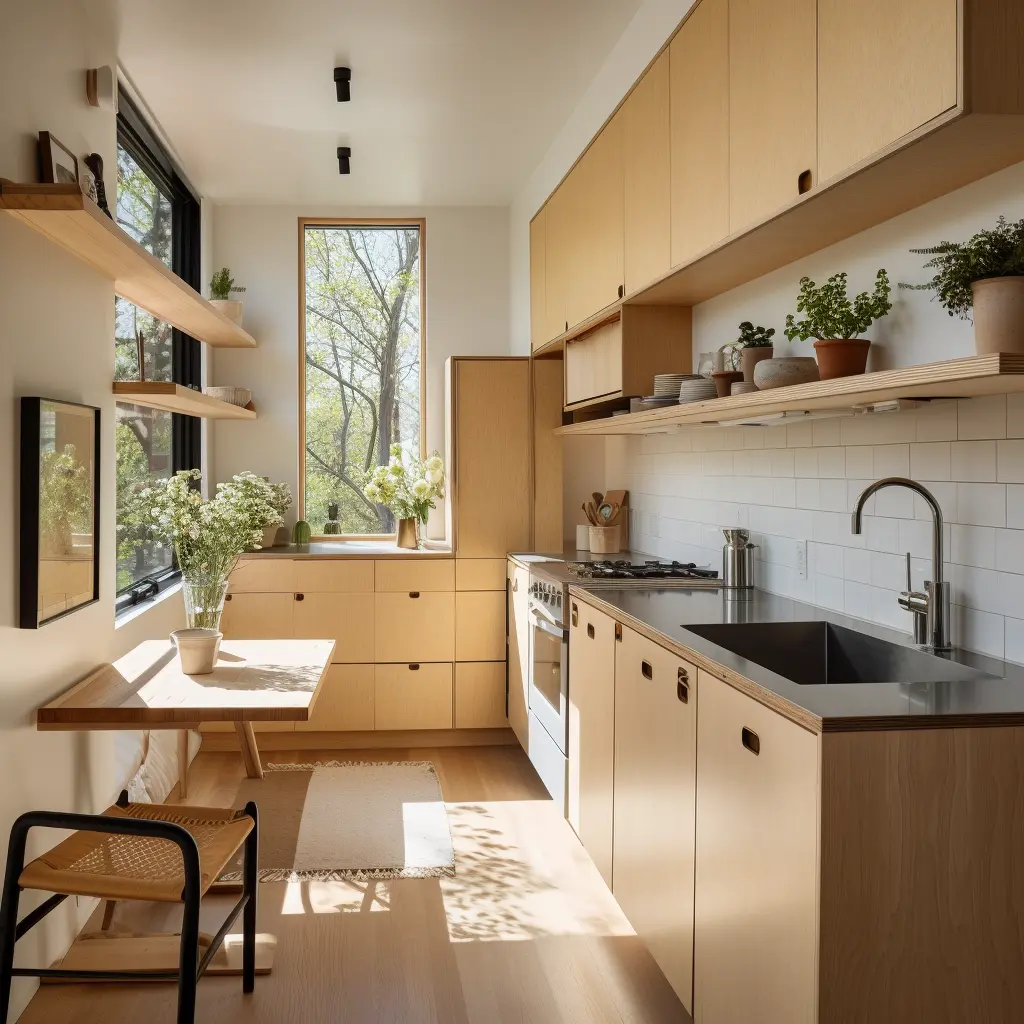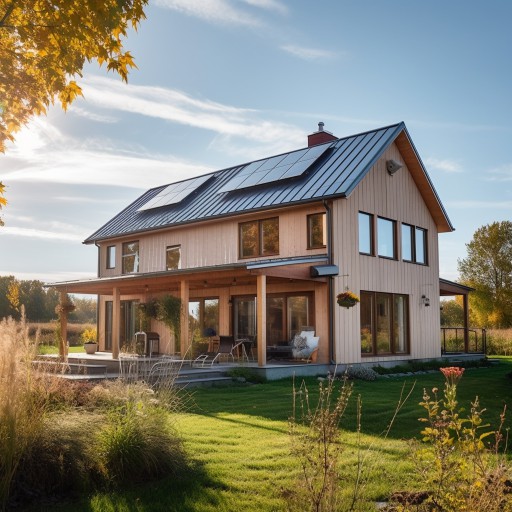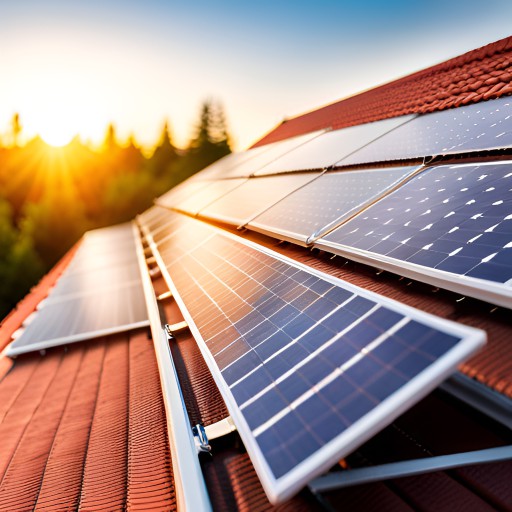Comparing Countertop Costs and Sustainability

co-founder
- Granite Countertops
- Quartz Countertops
- Marble Countertops
- Wood/Butcher Block Countertops
- Composite Countertops
- Stainless Steel Countertops
- Concrete Countertops
- Laminate Countertops
Selecting the right countertop material for your kitchen is an integral part of creating a space that is both functional and aesthetically pleasing. As with any sustainable home renovation project, your choice must reflect factors such as price, durability, aesthetics, maintenance needs, and sustainability. With numerous options available and a million other decisions to make during your kitchen renovation, it can be a daunting task. Let's break it down.
Countertops are going to be one of the major expenses in your kitchen remodel, but it's easy to estimate countertop prices, and they're also among the most functional and visible part of the finished product. Along with your kitchen flooring options, it's worth spending time here to make the right decision.

Granite Countertops
Renowned for their natural beauty and unique patterns, granite countertops bring a touch of luxury to your kitchen. They are durable and heat-resistant, qualities that make them appealing to home cooks. However, they can chip or crack and need regular sealing to prevent stains. The cost is roughly $40 to $70 per square foot without installation, although prices can vary.
While granite countertops offer a unique, beautiful aesthetic, they come with significant environmental drawbacks. The process of quarrying and transporting the granite is energy-intensive and contributes to carbon emissions. Plus, these countertops require regular resealing, which may involve chemical-based products. Learning more about eco-friendly kitchen remodeling can help you reduce you and your family's carbon footprint.

Quartz Countertops
Quartz countertops, unlike granite, are engineered. Their high durability, non-porous nature (which eliminates the need for sealing), and consistency make them a popular choice for many homeowners. However, they are less heat-resistant than granite and may lack the unique, natural appeal. The cost of quartz countertops typically ranges from $50 to $200 per square foot depending on quality.
Quartz countertops are engineered from natural quartz combined with resin. This reduces the need for mining, which can be environmentally damaging. However, the process of making the resin can be energy-intensive, and quartz isn't as easily recyclable as some other materials.

Marble Countertops
Marble is synonymous with luxury, and each slab is unique. However, marble is porous and requires regular sealing to prevent staining. It can also scratch and chip more easily than other materials. Marble countertops will cost you around $60 to $200 per square foot.
Like granite, marble is a natural stone, so its extraction and transport can have a high environmental impact. Marble quarries can also cause significant landscape damage.
Wood/Butcher Block Countertops
Wood, or butcher block countertops, add warmth and character to your kitchen. They can be sanded and refinished over time, which extends their lifespan, and if sourced responsibly, they're a sustainable choice. On the downside, they require regular sealing and can be damaged by water and heat. They typically cost between $30 to $100 per square foot.
Wood countertops can be a sustainable option, especially if sourced from responsibly managed forests or reclaimed sources. They are biodegradable and have a smaller carbon footprint than many stone and engineered materials. However, they often require finishes and sealants for protection, which can have a higher environmental impact depending on the product used.
Composite Countertops
Composite countertops are a unique and increasingly popular option for homeowners seeking a more sustainable alternative to traditional countertop materials. They're typically made from a blend of materials such as recycled glass and a binder, often cement-based. An excellent example of this is IceStone.
IceStone countertops, for instance, are produced using just three ingredients: recycled glass, Portland cement, and non-toxic pigment. This formula results in a surface that does no harm to the environment, poses no safety risk to workers during installation, and contains no resins, glues, petrochemicals, plastics, or chemical binders.
Stainless Steel Countertops
Stainless steel countertops offer a sleek, modern, and industrial look. They're durable, heat-resistant, and easy to clean. However, they can scratch and dent, and fingerprints can be an issue. These countertops are at the higher end of the spectrum, costing between $80 to $200 per square foot (installed).
Stainless steel is highly recyclable, and many countertops are made of a significant percentage of recycled material. However, the process of making stainless steel is energy-intensive, so its overall environmental footprint is mixed.

Concrete Countertops
Concrete countertops offer a modern and minimalist appeal. They're highly customizable and durable. However, they need regular sealing and can develop cracks over time. Additionally, their weight requires sturdy cabinets for support. Expect to pay around $70 to $140 per square foot for concrete countertops.
Concrete countertops can be made with recycled aggregates like glass, which can make them a more sustainable choice. They also have a long lifespan. However, the cement industry is a significant contributor to CO2 emissions, so the production process can have a high environmental impact.
Laminate Countertops
Laminate countertops are the most cost-effective option. They come in a variety of designs and colors. However, they lack the durability of more expensive materials and are not easily repairable if they get damaged. These countertops generally cost between $10 to $60 per square foot.
Laminate countertops have a lower environmental impact in terms of production and transport because they're lightweight and often partly made from recycled materials. However, they have a shorter lifespan than many other materials and aren't easily recyclable.
When selecting the perfect countertop for your kitchen, consider your needs, your budget, and the material's environmental impact. Your ideal countertop should not only enhance the beauty of your kitchen but also contribute to a more sustainable lifestyle.
Once you're done figuring out your countertops and kitchen, get back to thinking about energy efficiency and how it can apply to your new culinary playground. Start thinking about energy efficient appliances and other steps to save money and energy.

Renovate with EcoHome
EcoHome empowers homeowners to confidently build healthy and comfortable homes for a fair price.
Sign UpLocations View All →
NY
- Albany
- Binghamton
- Buffalo
- Esopus
- Freeport
- Hempstead
- Highland
- Kingston
- Long Beach
- Marlboro
- Mount Vernon
- New Paltz
- New Rochelle
- New York City
- Niagara Falls
- North Tonawanda
- Olivebridge
- Plattekill
- Rochester
- Rome
- Saugerties
- Schenectady
- Shandaken
- Syracuse
- Troy
- Utica
- Valley Stream
- Wallkill
- Woodstock
- Yonkers
NJ
- Bayonne
- Brick
- Camden
- Cherry Hill
- Clifton
- East Orange
- Edison
- Elizabeth
- Jersey City
- Lakewood
- Middletown
- Newark
- Old Bridge
- Passaic
- Paterson
- Toms River
- Trenton
- Union City
- Woodbridge
CT
PA
- Allentown
- Altoona
- Bethel Park
- Bethlehem
- Chester
- Easton
- Harrisburg
- Hazleton
- Lancaster
- Lebanon
- Monroeville
- Philadelphia
- Pittsburgh
- Reading
- Scranton
- Wayne
- Wilkes Barre
MD
- Abingdon
- Baltimore
- Bethesda
- Bowie
- Columbia
- Dundalk
- Ellicott City
- Frederick
- Gaithersburg
- Germantown
- Glen Burnie
- Potomac
- Rockville
- Severn
- Silver Spring
- Towson
- Waldorf



